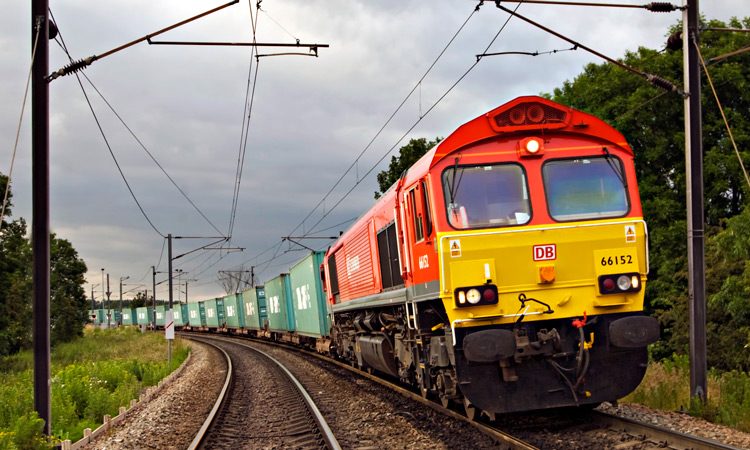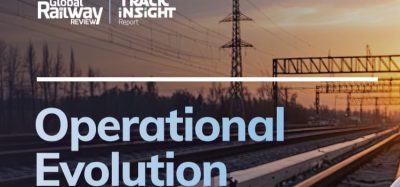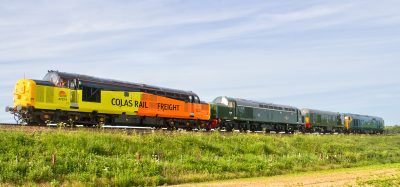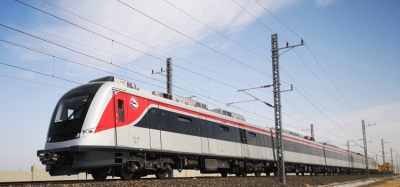Williams Rail Review: What’s next for UK rail freight?
Posted: 9 July 2019 | Alex Veitch | No comments yet
Alex Veitch, Head of Multimodal Policy at the FTA, reveals the five key requests the association has included in its submission to the Williams Rail Review in support of future-proofing UK rail freight.


Credit: Network Rail
Rail freight is set to play a larger role in the movement of goods in the UK and internationally; its use is steadily increasing, with the total volume of rail freight moved rising by three per cent year-on-year. But while Network Rail has forecast a growth of 32 per cent by 2033/2034, this figure is dependent on the absence of capacity constraints. The FTA, the business organisation representing the logistics sector, is working closely with the government to unlock the full potential of the rail network and ensure rail reform works for all UK PLC.
The FTA has submitted its response to the Williams Rail Review, the Department for Transport’s (DfT) call for evidence to support a review of the organisational and commercial frameworks of the UK rail industry. Within its submission, the FTA has highlighted the importance of rail freight to the UK economy and clearly identified where further investment is needed. It has made five key requests on behalf of its members: Improve the way rail capacity is allocated; provide greater contractual flexibility; preserve national network integrity in the face of devolution; provide reassurance that Network Rail will remain corporately independent from dominant regional passenger operators; and incentivise National Rail to drive freight growth in each geographic area.
1. Unlock rail capacity
The FTA is calling for improvements to the way in which access to rail capacity is allocated. There are cases where new passenger services entering into contracts with public bodies are allocated paths that have previously been allocated to freight operators. This “double counting” leads to conflicts and disputes; the Review must ensure this practise ends. We recommend that a single body – whether the existing regulator, the infrastructure manager or potentially a new agency – maintain a clear master list of what paths are already allocated and what is available for new franchise or public service contracts.
Rail freight generated economic benefits for the UK of over £1.7 billion in 2016 and contributes more than half a billion pounds of externality benefits by reducing congestion, air pollution and road accidents.
According to the FTA, the government should implement a more effective way to resolve competing bids for capacity; an unavoidable issue in Britain’s congested rail network. The government should set out a new policy, whereby competing claims are judged on which bid would make the best use of the network. A duty would be placed on the regulator to produce a clear methodology to be used to make the assessments.
Importantly, this assessment must have regard to not only the direct impacts, such as access charges paid by the operator or passenger revenue returned the Treasury, but also the wider economic and social implications of the competing bids. These external costs are where rail freight performs brilliantly: A typical freight train can remove 50 lorries from Britain’s roads, which has obvious benefits for safety and congestion. Rail freight generated economic benefits for the UK of over £1.7 billion in 2016 and contributes more than half a billion pounds of externality benefits by reducing congestion, air pollution and road accidents.
2. Offer contractual flexibility
The FTA is also calling for greater contractual flexibility in contracted passenger services. If a regulator does indeed rule that a competing bid would make better use of the network, this flexibility would enable changes to access. Together with the new duty to make best-use, this would allow freight operators to bid for, and where appropriate take over, some paths that are currently held by passenger operators; rail freight is now in a position to take advantage of business opportunities.
3. Uphold national network integrity
To enable cross-border operations to prosper, for both freight and national passenger services, the FTA is asking the Review team to ensure that national network integrity is preserved.
Network Rail recently implemented a new structure to give greater autonomy to its regional units; this is designed to put the management of passenger rail services closer to the people they serve. The Scottish and Welsh governments – plus major English city regions such as London and the West Midlands – already have a significant role in the contracting of passenger services, a trend which is likely to continue to include Transport for the North.
To enable cross-border operations to prosper, for both freight and national passenger services, the FTA is asking the Review team to ensure that national network integrity is preserved. Specifically, we are calling for a strengthened “System Operator” function to support freight operators in securing practical, national routes and to avoid a “patchwork quilt” approach, where they must bid to separate authorities for their paths.
4. Maintain corporate independence
The FTA is asking for reassurance that Network Rail will remain corporately independent from dominant regional passenger operators, while simultaneously having very high levels of operational cooperation. This separation is vital to avoid baking-in systemic bias: It would create strong financial incentives to, for example, favour passenger operators in all maintenance activity and in-service recovery following disruptions. Freight and other national operators would need iron-clad regulatory protection to ensure they are receiving fair treatment.
5. Incentivise regional growth
The FTA is also calling for strong corporate objectives to be put in place that incentivise Network Rail to actively grow freight in each geographic area. This is working well in Scotland, where our members report that a new target to grow freight has led to a marked improvement in activity and engagement.
For these aforementioned reasons, the FTA is calling on the government to publicly distance itself from a comprehensive Japan-style full regional vertical integration; this would be disastrous for freight. It would damage the overall national network and create unacceptable institutional bias in favour of the regional passenger operator; instead we encourage dialogue on some of the more deliverable options and regulatory changes to support rail freight going forward.
There are many steps the government can take to future-proof rail freight and maximise its potential; the FTA hopes the Williams Rail Review Team listens closely to our recommendations.
Biography


The FTA
Efficient logistics are vital to keep Britain trading, directly having an impact on more than seven million people employed in the making, selling and moving of goods. With Brexit, new technology and other disruptive forces driving change in the way goods move across borders and through the supply chain, logistics has never been more important to UK plc. A champion and challenger, the FTA speaks to government with one voice on behalf of the whole sector, with members from the road, rail, sea and air industries, as well as the buyers of freight services such as retailers and manufacturers.
Related topics
Brexit, Cargo, Freight & Heavy-Haul, Digitalisation, Funding & Finance, Infrastructure Developments, Regulation & Legislation, Route Development
Related organisations
Department for Transport (DfT), Logistics UK, Network Rail, Transport for the North (TfN)








